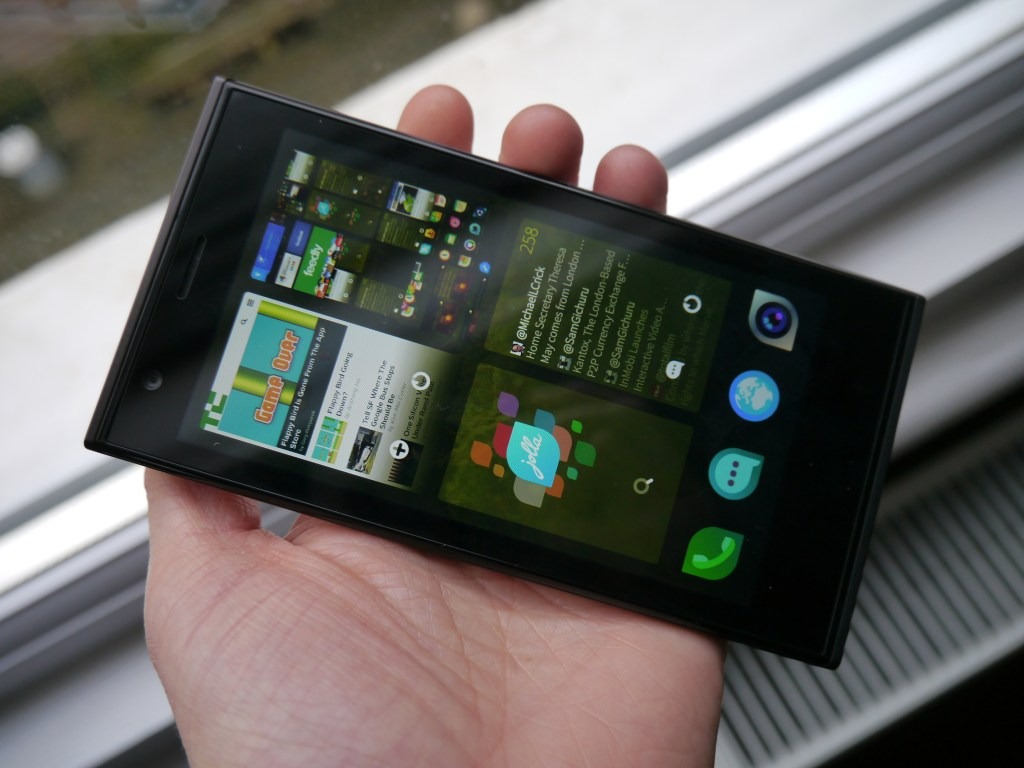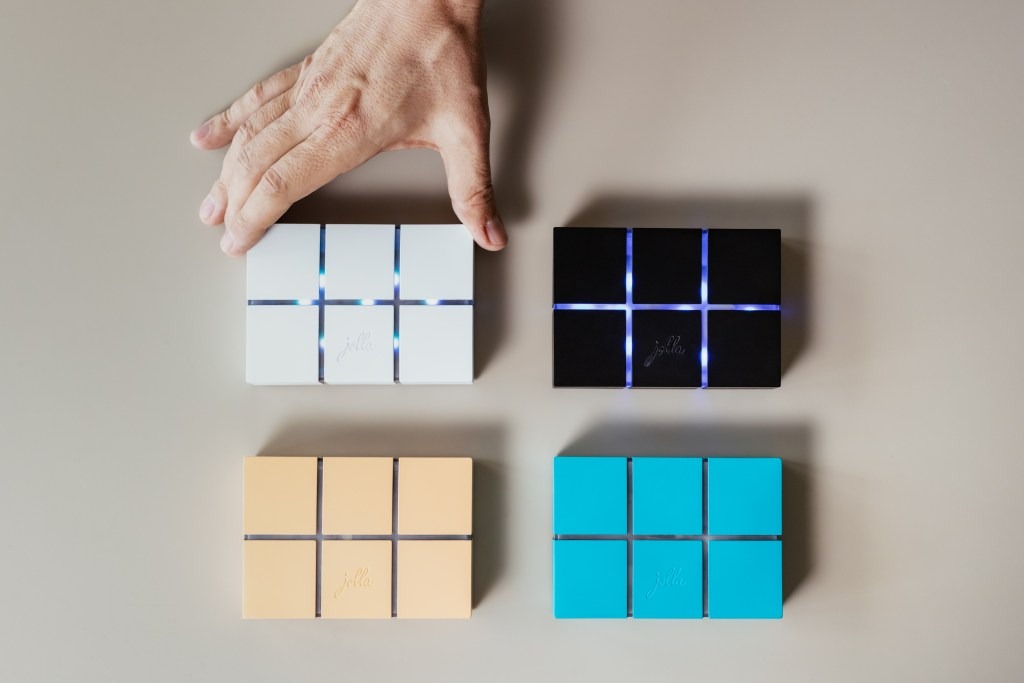Jolla has put into work the official version of the first version of its personal server-based AI assistant. The reborn startup is building a privacy-oriented AI device – also known as Jolla Mind2, which TechCrunch already presented exclusively at the MWC in February.
Pre-orders were also launched at a livestream launch event on Monday, with the first units to be delivered in Europe after this year. Worldwide pre-orders will begin in June, with plans to ship after this year or early next year.
In the over two months since we saw the first 3D printed prototype of Jolla’s AI-in-a-Box, there has been considerable hype surrounding other consumer-oriented AI devices such as Human’s Ai Pin and the Rabbit R1. But early interest has waned in the face of poor or unfinished user experiences — and the sense that emerging AI gadgets are eager to experiment has little usefulness.
The European startup behind Jolla Mind2 wants its AI device not to fall into this trap, according to CEO and co-founder Antti Saarnio. That’s why they are moving “carefully” — trying to avoid the danger of promising too much and delivering too little.

“I am sure that this is one of the biggest disruptive moments for the integration of AI into our software. It’s a massive disruption. But the first approaches were basically rushed, and that was the problem,” he told TechCrunch. “You should introduce software that actually works.”
The feedback is harsh, but fair given the recent launches.
Saarnio says that the team plans to ship a few hundred units (up to 500) of the device to early adopters in Europe this fall — probably to tap into the community of enthusiasts it has built around previous products like the Sailfish mobile operating system.
The price for the Jolla Mind2 will be € 699 (including VAT) — so the hardware is significantly more expensive than originally planned. But there is also more built-in memory (16 GB) and memory (1 TB) than originally planned. Less good: users have to pay a monthly subscription starting at € 9.99. So this is another AI device that will not be inexpensive.
AI agents who live in a box
The Jolla Mind2 contains a number of AI agents that are tailored to different productivity-oriented use covers. They are designed to integrate with relevant third-party services (via APIs) so that they can perform various functions for you — for example, an email agent that can search your inbox and compose and send messages. Or a contact agent that Jolla briefly introduced at the MWC, which can be a repository of information about people you interact with in order to keep you informed about your professional network.
In a video call with TechCrunch before the official launch on Monday, Saarnio introduced the recent version of Jolla Mind2 and showed some features that we had not seen before, including the aforementioned email agent. a document preview and summary function; an e-signing function for documents; and something new it calls “knowledge bases” (more below).
The productivity-oriented features we saw demonstrated worked, although there were some notable latency issues. An apologetic Saarnio said demo gremlins had slammed earlier in the day, causing last-minute performance issues.
Switching between agents was also manual in the demo of the chatbot interface, but he said that this would be automated by the semantic understanding of AI for user requests for the final product.

Planned AI agents include: a calendar agent; storage agent; task management; message agent (for integration with third-party messaging apps); and a “coach Agent” that you want to use in third-party activity/health tracking apps and devices so that the user can query their quantified health data on the device.
The promise of private processing on the device is the main selling point for the product. Jolla insists that user requests and data remain securely in their possession on the hardware. Instead of – for example, if you use Openais ChatGPT – transferring your personal data to the cloud for commercial data mining and someone else’s chance of winning…
Privacy sounds great, but latency clearly needs to be kept to a minimum. This is doubly important, given the productivity and convenience use cover for prosumers, which Jolla is targeting in addition to its core strategic focus on the firewall of your personal data.
The key point is that the device’s built-in AI model with about 3 billion parameters (which Saarnio calls the “small voice model”) can be connected to all kinds of third-party data sources. This makes the user information available for further processing and extensibility, without you having to worry that the security or integrity of your information will be compromised if you use the power of AI.
For queries where the Jolla Mind2’s local AI model may not be enough, the system provides users with the ability to send queries outside the world — to third-party Large Language Models (LLMs) — while alerting them that this means that they are sending their data outside the secure and private space. Jolla plays with a kind of color coding for messages to indicate the applicable level of data protection (for example, blue for complete security on the device; Red for Huch, your data is exposed to commercial AI, so all privacy bets are disabled).

The performance confirmed by Saarnio will be in the foreground for the team in the refinement of the product. “It’s basically the old rule that if you want to make a breakthrough, it has to be five times better than the existing solutions,” he said.
Safety must also necessarily have priority. For example, the hardware will set up a private VPN connection so that the user’s mobile device or computer can communicate with the device securely. Saarnio added that there will be an encrypted cloud-based backup of user data stored on the box in cover of hardware failure or loss.
Which zero-knowledge encryption architecture you choose to ensure that external access to the data is not possible will be an important consideration for privacy-conscious users. These details are still being found out.



